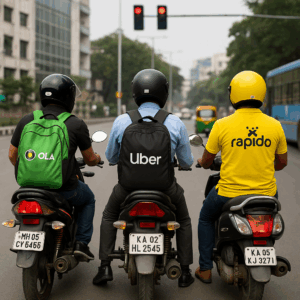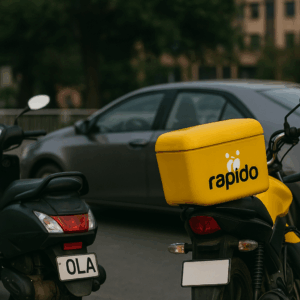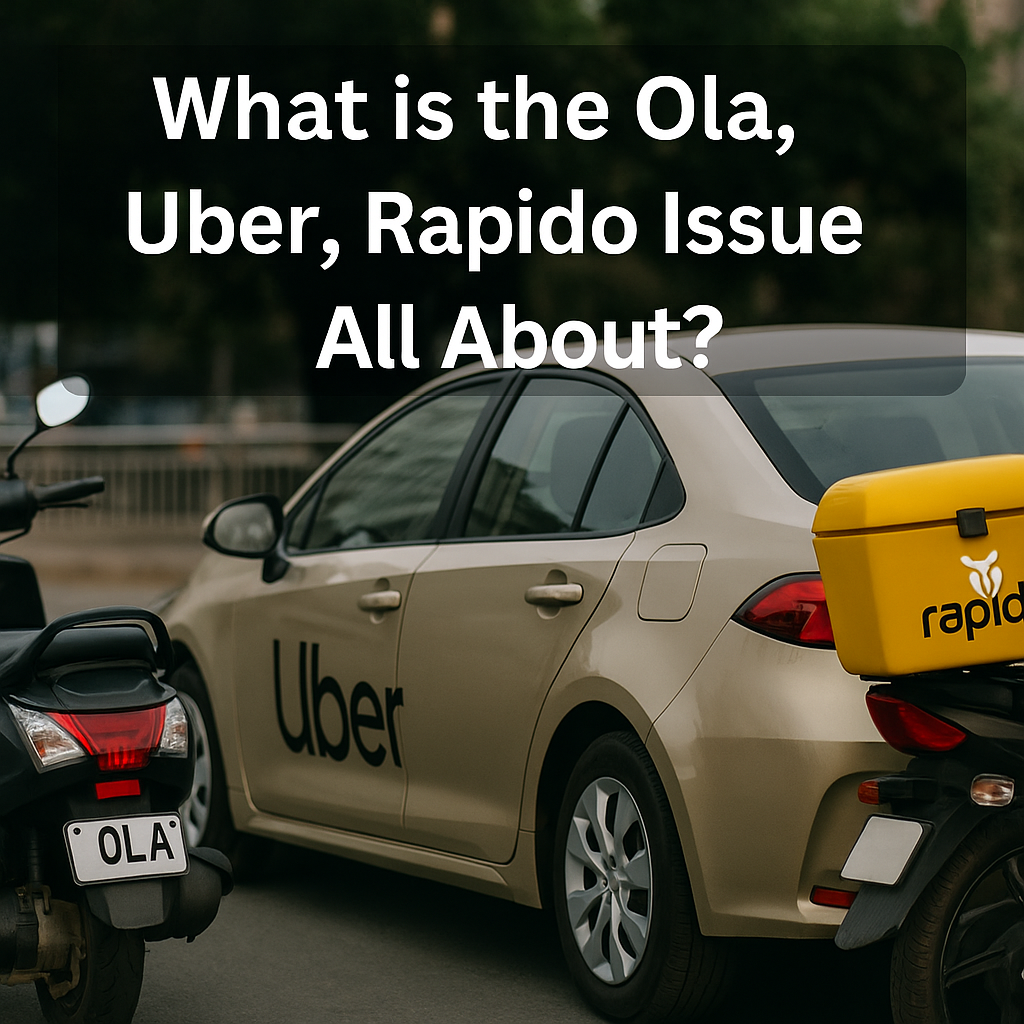India’s urban transport has rapidly transformed, thanks to Ola, Uber, and Rapido. These platforms offered quick, cheap rides for many. But the convenience has hit legal roadblocks across states. Especially in Delhi, Maharashtra, and Karnataka, authorities question the legality of bike taxis. Rapido, leading the bike-taxi space, is often targeted. Ola and Uber have also faced court cases and ride bans. The central reason? Lack of proper aggregator licenses and insurance violations. States argue these companies bypass transport rules. Bike taxis, though economical, risk safety and accountability concerns.
Many riders lack commercial licenses or insurance coverage. At the same time, these platforms offer vital income for gig workers. Lakhs depend on them for livelihood. The ongoing conflict now draws attention to regulation gaps in India’s mobility sector. Are they public transport alternatives or just informal setups? Let’s break down the issue across legality, economics, and commuters’ rights.
Legal Hurdles Faced by Ola, Uber, and Rapido
Ola, Uber, and Rapido have faced several state-wide bans and legal notices in India. Transport departments claim these platforms lack valid aggregator licenses for bike taxis. States like Maharashtra and Delhi stopped Rapido citing Motor Vehicle Act violations. Bike taxis are classified under private use, not commercial use, causing licensing issues. The Delhi government declared bike taxis illegal under current commercial permit laws. The Supreme Court and High Courts were also involved in related legal proceedings. In Karnataka, Rapido was banned citing passenger safety and insurance gaps.

App-based services argue they enable last-mile connectivity and reduce traffic congestion. They claim current transport laws are outdated for modern digital aggregators. Startups seek clarity and uniform rules across India for their operation. Lack of national-level policy adds confusion and inconsistent decisions. Delhi’s Motor Vehicle Aggregator Guidelines are still under review. These platforms continue to operate in a grey legal space. Future regulation may determine their legality and scope across all Indian cities. Until then, services face shutdowns and rider frustration. The legal battle is far from over for ride-hailing platforms in India.
Economic and Employment Impacts of the Conflict
Thousands rely on Ola, Uber, and Rapido for daily income and employment. Bike taxis have become a major job source for the gig economy. Most riders are youth or migrants needing quick cash with flexible hours. When bans are imposed, many lose their only income source abruptly. Rapido alone has over 100,000 active riders across India. Ola and Uber also offer part-time options for struggling workers.
The issue goes beyond legality—it’s about survival for urban youth. Without these platforms, informal and risky commuting alternatives may rise. A regulated system could offer safety while supporting employment. States must balance enforcement with the public’s livelihood needs.

Several startups shut down due to unclear rules and policy gaps. Riders spend heavily on bikes, fuel, and devices to join platforms. With every ban, their investment risks turning into loss. Gig workers demand protection, legal backing, and inclusion in policy decisions. Their voices are missing in current debates.
Job creation needs progressive regulation, not sudden shutdowns. India’s unemployment crisis needs solutions, not restrictions. The Ola, Uber, Rapido issue directly affects lakhs seeking financial stability.
How Urban Commuters Are Caught in the Crossfire
Bike taxis emerged as the cheapest last-mile solution in urban India. Ola, Uber, and Rapido changed how people travel short distances daily. They offer faster rides during peak hours and traffic jams. For many students and office-goers, bike taxis are essential. When bans are imposed, commuters suffer delays and higher expenses. Autos and cabs often refuse short trips or overcharge riders. Public transport isn’t always reliable or accessible in growing cities. Ola and Uber provided predictable, app-based booking experiences. Commuters appreciated digital payments and ride tracking. With services halted, they must now return to chaotic options. This adds daily stress and financial strain to urban life.

Rural-urban migrants also depended on shared or affordable bike rides. The ban disproportionately affects low and middle-income riders. Consumers now demand a say in regulatory decisions. Authorities must involve them in policymaking processes. A well-regulated ride-hailing industry benefits both commuters and governments. The future of Indian Urban transport must include flexibility and affordability. Urban India deserves transport solutions, not disruptions. Regulators must act swiftly to resolve the ride-hailing conflict.
Utpal Khot
Copyright © Utpal K
1. If you share this post, please give due credit to the author Utpal Khot
2. Please DO NOT PLAGIARIZE. Please DO NOT Cut/Copy/Paste this post.
© Utpal K., all rights reserved.
Copyright Notice: No part of this Blog may be reproduced or utilized in any form or by any means, electronic or mechanical including photocopying or by any information storage and retrieval system, without permission in writing from the Blog Author Utpal Khot who holds the copyright.





